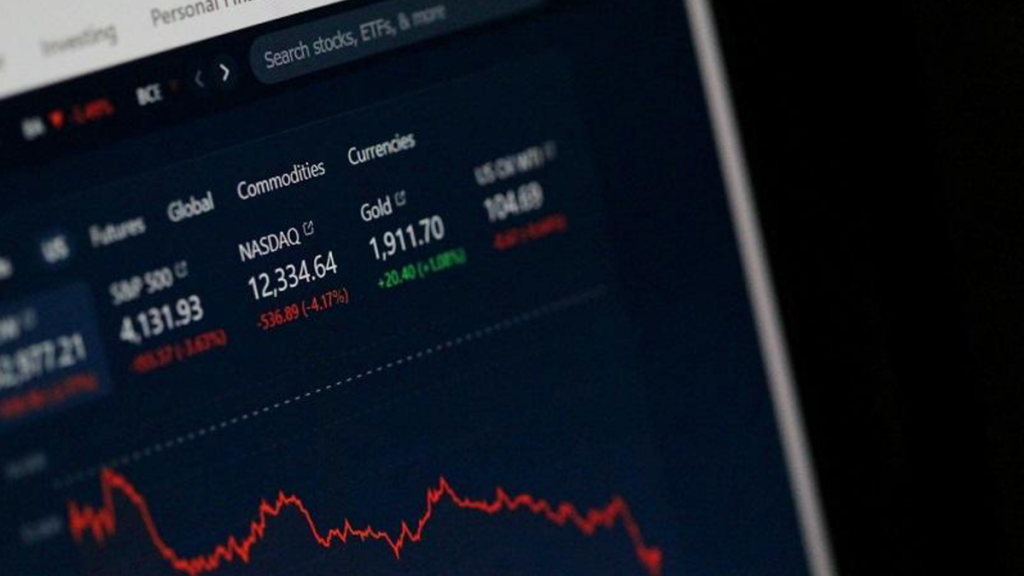The world of online trading offers immense potential for financial growth, but it’s not without its challenges. For newcomers, the excitement of trading can quickly be overshadowed by unexpected losses or overwhelming complexities. This guide will help beginners identify common pitfalls, providing actionable strategies to navigate the trading landscape with confidence. You’ll learn the value of preparation, the necessity of an emergency fund, and the importance of risk management, ensuring your trading journey begins on a strong foundation.
Understanding the Basics of Online Trading
Entering the trading world without adequate knowledge is like diving into deep waters without knowing how to swim. A solid understanding of trading fundamentals is critical to long-term success.
Research Before You Trade
Many beginners jump into trading without thoroughly understanding the assets they’re dealing with. Stocks, forex, and cryptocurrencies each come with unique dynamics. Researching market trends, reading financial reports, and staying updated with economic news can save you from costly mistakes. Remember, informed decisions often trump impulsive actions.
The Importance of a Trading Plan
Trading without a plan is akin to setting out on a journey without a map. A well-structured trading plan should outline your financial goals, preferred assets, and risk tolerance. Setting aside a portion of your capital as an emergency fund—reserved strictly for unexpected circumstances—is a critical aspect of this plan. This fund acts as a safety net, ensuring that unforeseen events don’t derail your financial stability.
Managing Risk Wisely
Risk management is the cornerstone of successful trading. By implementing sound strategies, you can protect your capital and maintain a healthy financial position.
Setting Stop-Loss Orders
One of the simplest yet most effective risk management tools is the stop-loss order. This feature allows you to predefine the maximum loss you’re willing to accept on a trade. For instance, if a stock’s value drops below a specified threshold, the stop-loss order automatically triggers a sale, minimizing your losses. Consistently using stop-loss orders can prevent small losses from spiraling into significant financial setbacks.
Diversifying Your Portfolio
Putting all your eggs in one basket is a recipe for disaster. Diversification—spreading your investments across various asset classes—helps mitigate risk. If one asset underperforms, others may compensate, balancing your overall returns. For beginners, ETFs (Exchange-Traded Funds) offer an accessible way to diversify without requiring extensive market knowledge.
Emotional Discipline in Trading
Trading can be an emotional rollercoaster, with soaring highs and crushing lows. Mastering emotional discipline is vital for maintaining objectivity and avoiding impulsive decisions.
Avoiding Overtrading
Excitement and greed often lead beginners to overtrade, making excessive transactions in pursuit of quick profits. Overtrading not only increases transaction costs but also exposes you to greater risk. Set realistic daily or weekly trading limits to avoid burnout and financial strain.
Sticking to Your Plan
It’s easy to deviate from your trading plan when emotions run high. However, straying from your strategy can lead to reckless decisions. Revisit your plan regularly, and remind yourself of the importance of sticking to your predefined goals and limits. An emergency fund, as part of your broader financial strategy, provides the peace of mind needed to stay disciplined.
Leveraging Technology for Better Outcomes
Modern trading platforms offer tools and features that can enhance your trading experience. Utilizing these resources effectively can provide a significant edge.
Using Analytical Tools
Many platforms offer built-in analytical tools that provide insights into market trends, price movements, and trading volumes. Learning to interpret these indicators can help you make data-driven decisions rather than relying on guesswork.
Automation and Alerts
Automation tools, such as trading bots, can execute trades on your behalf based on predefined criteria. Additionally, setting up alerts for significant market events ensures you’re always in the loop, even when you’re not actively monitoring the markets. These tools, combined with a well-funded emergency reserve, can help you maintain control over your finances.
Exploring Educational Resources
Many trading platforms and financial institutions offer free or low-cost educational resources. Tutorials, webinars, and virtual trading accounts can help you refine your skills before risking real money. Incorporate these resources into your routine to stay ahead of market trends and sharpen your strategies.
The Role of an Emergency Fund in Trading Success
An emergency fund is more than a financial safety net; it’s a psychological buffer that allows traders to make calm, rational decisions during periods of market volatility. Beginners should prioritize building and maintaining this fund as a core element of their trading strategy. Knowing that you have a financial cushion can reduce stress and improve your overall trading performance.
Conclusion
Online trading holds the promise of financial growth, but it’s not without risks. By understanding the basics, managing risks, maintaining emotional discipline, and leveraging technology, beginners can navigate this complex arena with confidence. Remember, an emergency fund is not just a financial cushion; it’s a key component of a comprehensive trading strategy. With preparation and vigilance, you can avoid common pitfalls and set yourself on the path to trading success.
